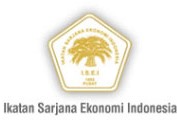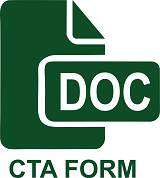Financial Resilience Strategy on Cancer Survivors Household in East Java
(1) Universitas 17 Agustus 1945 Surabaya
(2) Universitas 17 Agustus 1945 Surabaya
(3) Universitas Muhammadyah Surabaya
(4) Universitas 45 Surabaya
Abstract
The problem of this research is how to make a financial resilience strategy faced by households during the economic crisis. The purpose of this study is to analyze the strategy of household financial resilience during an economic crisis. The design in this study uses a quantitative approach by collecting data through surveys.Respondents in this study were breast cancer survivors in East Java.The findings in this study are that every household needs a financial strategy in dealing with a crisis.An adaptive capacity strategy is needed so that household financial resilience remains flexible.Absorption strategy is a strategy in building financial resilience capability which is always strived to be in a stable position.A transformative capacity strategy is carried out to build household financial resilience when experiencing financial shocks by making drastic changes to financial planning.
Keywords
Full Text:
PDFReferences
Berkes, F., Colding, J., & Folke, C. (2009). Introduction Navigating Social-Ecological Systems, 1–30. https://doi.org/10.1017/cbo9780511541957.003
Danes, S. M. (2014). Understanding and Building Resilience. University of Minnesota. www.extension.umn.edu/household/live-healthy-live-well/healthy-minds/dealing-with-stress/staying-resilient-in-times-of-change-online/
Hasbullah, T., et al, (2012). Socio-Economic Impact of Cancer in Member States of the Association of Southeast Asian Nations (ASEAN): ACTION Study Protocol. Asia Pacific Journal of Cancer Prevention, 13(2012).
Hogarth, J., & Hilgert, M. (2002). Financial Knowledge, Experience and Learning Preferences: Preliminary Results from a New Survey on Financial Literacy Marianne A. Hilgert, Federal Reserve Board. Consumer Interest Annual, 48, 1–7.
Huston, S. J. (2009). The Concept and Measurement of Financial Literacy: Preliminary Results from a New Survey on Financial Literacy Assessment. Conference Presentation, Academy of Financial Services Annual Conference, Anaheim, CA, October 9.
Huston, S. J. (2010). Measuring Financial Literacy. Journal of Consumer Affairs, 44(2), 296–316. https://doi.org/10.1111/j.1745-6606.2010.1170.x
Latuconsina, H., Saepuloh, D., & Aprilia, S. (2020). Islamic Financial Literacy Level of Students in terms of Parents' Socio-Economic Status and Spiritual Intelligence. Journal of Theory and Applied Islamic Economics, 7(12), 2468. https://doi.org/10.20473/vol7iss202012pp2468-2479
Mcknight, A., & Rucci, M. (2020). The financial resilience of households: 22 country study with new estimates, breakdowns by household characteristics and a review of policy options. Center for Analysis of Social Exclusion, London School of Economics, May, 3–56. http://stickerd.lse.ac.uk/case
Pramuhadi, R. N. (2020). Lifestyle of using credit cards in urban communities in Surabaya. Journal of Sociology of Dialectics, 15(2). https://doi.org/10.20473/jsd.v15i2.2020.72-78
Remund, D. (2010). Financial Literacy Explicated: The Case for a Clearer Definition in an Increasingly Complex Economy. The Journal of Consumer Affairs, 44(2), 276 - 295.
Saputra, R. S., & Dewi, A. S. (2017). The Role of Social Capital as a Mediator of Financial Literacy and Financial Inclusion in Young People in Indonesia (Case Study on the Beginner Stock Investor Community). Journal of Theory and Applied Management, 10(3), 243. https://doi.org/10.20473/jmtt.v10i3.3064
Suadi, S., Ineke Wati, R., & Mitsuhiro, N. (2019). Innovation in Financing Coastal Village Development through Community-Owned Microfinance Institution: A Case Study of Village Credit Institution (LPD) Kedonganan Bali. Scientific Journal of Fisheries and Marine Affairs, 11(2), 1–10. https://doi.org/10.20473/jipk.v11i2.15733
Refbacks
- There are currently no refbacks.

This work is licensed under a Creative Commons Attribution 4.0 International License.






